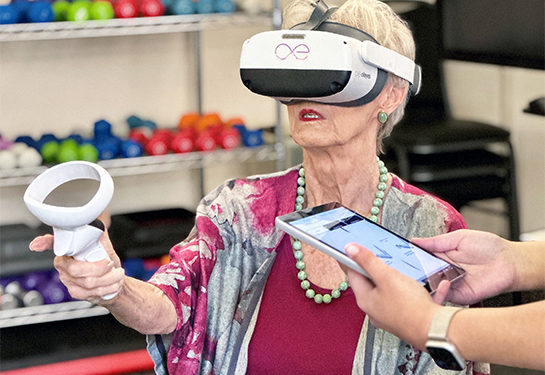Laser Vision Correction
Our eye surgeons perform all types of advanced laser vision correction surgeries, including LASIK, PRK and laser-assisted cataract surgery.
Medically reviewed by Jeffrey Caspar, M.D. on Aug. 11, 2023.
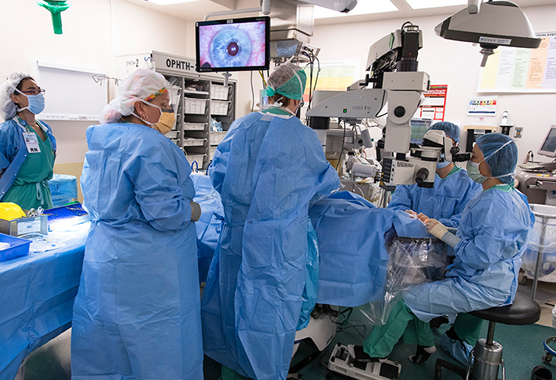
Advanced Laser Treatments for Improved Vision
Laser vision correction (laser eye surgery) corrects certain vision problems to help reduce or eliminate the need for glasses or contact lenses. Highly trained ophthalmologists (eye surgeons) at the UC Davis Eye Center use state-of-the-art laser technology to reshape the front surface of your eyes to improve your vision.
The new shape helps your eyes focus light better so you can see more clearly. After surgery, many people no longer need glasses or contact lenses. Our eye surgeons perform a range of laser eye surgeries to treat common and complex vision problems.
Types of Laser Eye Surgeries
There are several types of laser vision correction procedures. Your provider can help determine which procedure is best for you.
Bladeless LASIK
Our eye surgeons specialize in bladeless LASIK (laser-assisted in situ keratomileusis) eye surgery. They use one type of laser to create a flap in your cornea. A different laser reshapes the cornea underneath the flap. This procedure can quickly improve your vision with minimal discomfort and rapid visual recovery.
Photorefractive Keratectomy (PRK)
If you have thin corneas or dry eyes, your eye surgeon may recommend photorefractive keratectomy (PRK) instead of LASIK. They will use a laser directly on the surface of your cornea without making a flap. This procedure lowers the risk of certain complications, but vision improvements may be slower.
Astigmatic Keratectomy (AK)
An astigmatic keratectomy (AK) uses a laser to create short, curved incisions. This treatment can make irregularly shaped corneas (astigmatism) more spherical or round.
Laser Cataract Surgery
During laser cataract surgery, your eye surgeon uses an optical coherence tomography (OCT) guided femtosecond laser to perform many of the steps of cataract surgery typically done by hand. This improves the surgery’s precision and accuracy.
Request an Appointment
As Sacramento's No. 1 hospital, you'll benefit from unique advantages in primary care and specialty care. This includes prevention, diagnosis and treatment options from experts in 150 specialties.
Referring Physicians
To refer a patient, submit an electronic referral form or call.
800-4-UCDAVIS
Patients
Call to make an appointment.
Consumer Resource Center
800-2-UCDAVIS
Our eye surgery team will prepare you for what to expect before, during and after laser eye surgery. It is important to follow their instructions to make sure your surgery goes well.
-
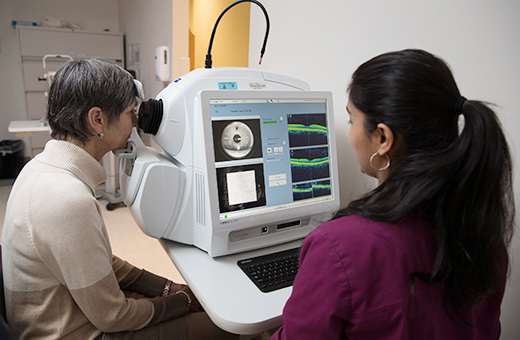
Before Laser Eye Surgery
During a presurgical evaluation, your provider will take numerous measurements of your eye including your refraction, the thickness of your corneas, your tear production and the size of your pupils. They’ll also use advanced imaging technology to create a wavefront scan of your eye. This information helps guide the laser during surgery proving more accurate results with better vision quality.
-
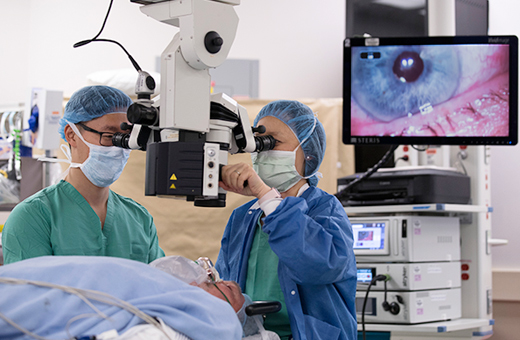
During Laser Eye Surgery
Numbing eyedrops will keep your eye comfortable, although you might feel pressure. An eyelid holder keeps your eye open during the procedure. Advanced eye tracking will assure the treatment is properly centered. Learn what to expect with laser eye surgery.
-
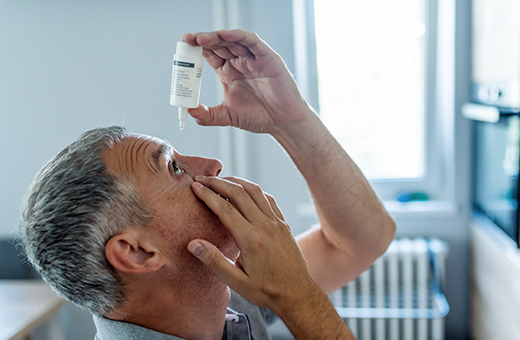
After Laser Eye Surgery
Your provider will place protective goggles over your eyes. You should wear these when you leave the center till the next morning. You may need to wear it for a few nights while you sleep. All medicated drops will be provided.
Home Care
You will receive detailed written instructions on use of the medicated eye drops and postoperative care.
Continue Your Medications
Use your antibiotic, lubricating and anti-inflammatory eyedrops as prescribed by your provider.
Protect Your Eyes
Sunglasses will be provided to wear outside as well as protective goggles.
Take It Easy
Depending on the type of procedure you have, you may return to work as soon as 1-2 days. PRK will require a longer recover period.

Ranked among the nation’s best hospitals
A U.S. News & World Report best hospital in cardiology, heart & vascular surgery, diabetes & endocrinology, ENT, geriatrics, neurology & neurosurgery, and pulmonology & lung surgery.

Ranked among the nation’s best children’s hospitals
U.S. News & World Report ranked UC Davis Children’s Hospital among the best in pediatric nephrology, orthopedics*, and pulmonology & lung surgery. (*Together with Shriners Children’s Northern California)

Ranked Sacramento’s #1 hospital
Ranked Sacramento’s #1 hospital by U.S. News, and high-performing in aortic valve surgery, back surgery (spinal fusion), COPD, colon cancer surgery, diabetes, gynecological cancer surgery, heart arrhythmia, heart failure, kidney failure, leukemia, lymphoma & myeloma, lung cancer surgery, pacemaker implantation, pneumonia, prostate cancer surgery, stroke, TAVR, cancer, orthopedics, gastroenterology & GI surgery, and urology.

The nation’s highest nursing honor
UC Davis Medical Center has received Magnet® recognition, the nation’s highest honor for nursing excellence.

World-class cancer care
One of ~59 U.S. cancer centers designated “comprehensive” by the National Cancer Institute.

A leader in health care equality
For the 13th consecutive year, UC Davis Medical Center has been recognized as an LGBTQ+ Healthcare Equality Leader by the educational arm of America’s largest civil rights organization.

